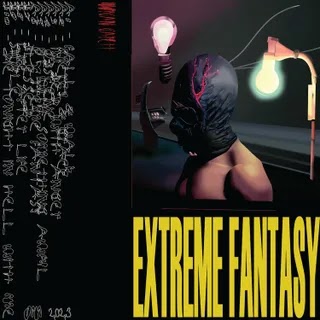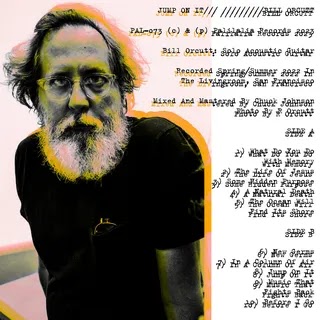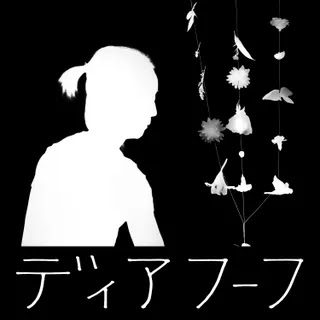A split EP between the prepared-piano composer and the noise musician explores their shared affinity for sounds that balance beauty with unease.
If all you had to go on was a passing familiarity with Kelly Moran’s delicate prepared-piano music, you might have scratched your head at her participation in Hospital Productions’ annual noise hoedown Hospital Fest, where she appeared in December 2018. The New York pianist and composer looked like an outlier on a bill that included the thrash-metal titans Power Trip, Japanese junk-metal noisemaker Linekraft, and Autoerotichrist, whose R. Mason ended his set covered in his own blood. But spend time with Moran’s 2018 album Ultraviolet and you might hear something extreme and uncompromising in its own way, its plucked strings and inky pools of electronics imbued with a prickly tension that remained stubbornly unresolved.
A similar spirit runs through Chain Reaction at Dusk, a split album between Moran and Hospital Productions proprietor Dominick Fernow, aka Prurient. The pair met in 2018 when both were booked to support Oneohtrix Point Never at New York’s Park Avenue Armory, bonding over a shared interest in drone and noise synthesis and the avant-garde piano compositions of John Cage and Erik Satie. This record, recorded in 2018, in advance of Fernow and Moran’s U.S. tour with Merzbow, demonstrates the artists’ clear affinity with one another. Both artists dig into the pulsating repetitions of systems music to strike a balance between contemplative beauty and anxious disquiet.
As on Ultraviolet, Moran’s side melds prepared piano with granular synthesis. Her three tracks often feel like an extension of the territory she explored on that album—particularly “Helix III,” which bumps the intensity of Ultraviolet’s “Helix” up a couple of notches with the addition of chiming synthesizer arpeggios. Moran’s pieces here often draw on the qualities of religious or spiritual music: “Hymn” commences with droning church organ before Moran mixes gentle piano progressions with flurries of shimmering struck notes. “Red Storm,” meanwhile, strikes a similarly numinous tone. In places it resembles a gleaming, hi-fi version of Laraaji’s hammered dulcimer music, or the brittle, trance-like improvisations of Michael O’Shea: music aligned with new-age tropes, but presented with a dark, ambiguous hue.
It’s tempting to think of Prurient’s side of Chain Reaction at Dusk as a response to Moran’s music, although given the ground Fernow has covered with his longest-running project, it’s difficult to say that for sure. The fiery extremity that often characterizes his work is largely absent, though this isn’t a complete curveball. Recorded using a bank of vintage analog synths and sequencers, its two tracks feel broadly in line with the music Fernow was making circa 2011’s Bermuda Drain, a fully realized album—albeit one that proved divisive among the noise-bro contingent of his fanbase—in which Fernow dug into melodic electronic music, inspired by the minimal techno he encountered while on tour in Europe.
“Tokyo Exorcist” echoes some of the religious connotations of Moran’s contributions, its liturgical synth bringing to mind kosmische explorers like Klaus Schulze or Tangerine Dream. It would probably work neatly as the soundtrack to a gory Italian giallo, and Fernow’s dour spoken-word interludes—and the occasional tolling of a distant bell—further contribute to the atmosphere of spooky disquiet. We get a little more of the classic Prurient sturm und drang on “Help if I May Ask,” which commences with a firehose of white noise that finally abates to reveal a canvas of pallid synths and cryptic vocal asides, layered until incoherent. Towards the track’s end, Fernow treats the faithful to some trademarked Prurient vocal pyrotechnics. But the music remains muted and atmospheric, and the effect is more starkly enticing because of it.
Split records often sit awkwardly in their respective artists’ discographies. But Chain Reaction at Dusk works because it feels like it was designed to form a coherent whole. Moran and Fernow may come from different worlds, but they are also adept at moving between them, and this record stands as a reminder that a shared sensibility often offers a more interesting meeting point than a space merely delineated by the strictures of genre.
















0 comments:
Post a Comment